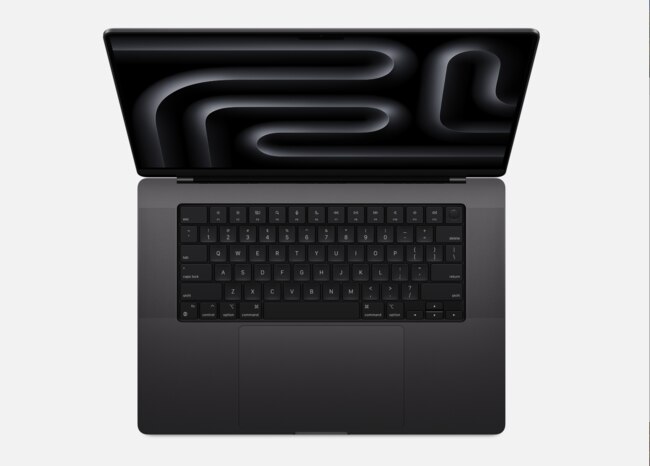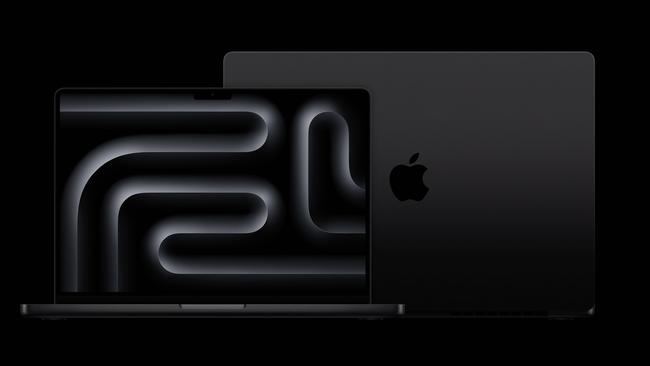The best laptop that Apple makes, but does it justify its $12,000 price tag?
Apple’s flagship M3 Max MacBook Pro is not for everybody, but Apple hasn’t designed it to be, targeting a market that’s squarely aimed at professionals.

The dust has settled on the release of Apple’s new range of MacBook Pros featuring its powerful M3 chips, so is it worth the upgrade?
The model I’m reviewing is the flagship 16-inch version with M3 Max chip, 128GB of memory and 8TB solid state drive. The computing power is phenomenal, with a price to match: $11,699.
This is clearly a computer not for everyone.
And it’s not meant to be. Apple says the high-end model is aimed at creating a game-changer for professionals, including architects, graphic designers and videographers, who rely on heavy computing firepower.

The M3 Max chip is designed to deliver enough grunt that’s on par with a desktop setup. This means that an architect can take the computer on site and show a client full renderings or make changes to plans in real time, rather than travelling back and forth to the office.
At a time of flatlining productivity, any tool that can save time and increase output is welcomed. But does the M3 Max live up to its claims?
Using the M3 Max was lightning quick. Start-up happened within seconds, and I could run multiple applications with ease. The review model, which came in the new Space Black colour, also looked pristine for longer thanks to Apple introducing a new anodisation seal that reduces fingerprint marks.
Portability
For the past 10 years, I’ve mainly used MacBook Airs and didn’t find the biggest laptop Apple now makes too cumbersome.
If you still have a MacBook Pro with an Intel chip, such as 2019 15-inch model, the 16-inch M3 Max is less than 1cm wider and weighs 310g more at 2.16kg. If you have a 14-year-old 13-inch MacBook - which I reviewed previously - the differences are less profound, with the M3 Max about 2.5cm wider and 30g heavier. The 16-inch M3 can even fit in the older Macbook’s laptop bag.
It can be removed from bags quickly during airport security checks and can fit on economy class tray tables (although, you won’t have room for anything else - and don’t think about ordering a drink).

Apple has squeezed more into a smaller package mainly through hardware changes and eliminating (sadly) its iconic backlit Apple logo and screen bezel. It does have a small notch at the top of the screen, which houses its 1080p camera, and has attracted some criticism. I found it no more distracting that an iPhone’s screen.
Battery life
The M3 Max has up to 22 hours of movie playback and 15 hours of wireless web browsing. This is roughly what I got. I took the computer on a trip from Melbourne to Sydney, doing an hour’s work in the lounge before departure, a similar amount on the plane (thank you Qantas wifi) and about three hours on the ground, and found my charge was around 70 per cent.
Real world use
It took a few seconds for the computer to display thumbnails of more than 2500 photos on my SD card and be ready for download. Apple says rendering speeds were 2.5 times faster than its M1 family of chips. But I didn’t have a direct comparison and my work scratched the surface of the M3 Max’s computing power.

To gain further insight on how the M3 Max lives up to its claims as a desktop replacement, I spoke to photographer and videographer Kane Vato. He said he used to travel with a 27-inch iMac so he had sufficient computing power.
“It was a nightmare, like one of my suitcases was my Mac - just purely because we were trying to churn out content at such a pace that the laptop, while it was good it didn’t compare,” Vato said.
“Whereas with M3 MacBook Pros, I’m now never waiting for the Mac (to process images). The Mac is waiting for me. It’s absolutely changed our workflow and time efficiency by an order of magnitude. What you can do with video, so effortlessly, means you can do a few more things and maybe be more creative on the go.”
It has also eliminated the need for Vato to use proxy files - which lowers the resolution of the original video file - lifting productivity further, although he said the actual time savings were more difficult to quantify.
“If I had to put a number on it, I would say going from a non-M class Mac - like an Intel-based Mac - I can get honestly maybe two-to-three times more work done at the same time.”
Verdict
Apple has filled a niche that should satisfy the needs of demanding professionals, justifying its price and upgrading - even from previous M-class chips. But for most people, who need lesser but still impressive performance, there are the M3 and M3 Pro powered models which are priced from $2699 and $3499 respectively, while a lower spec’d M3 Max starts at $5999.


To join the conversation, please log in. Don't have an account? Register
Join the conversation, you are commenting as Logout